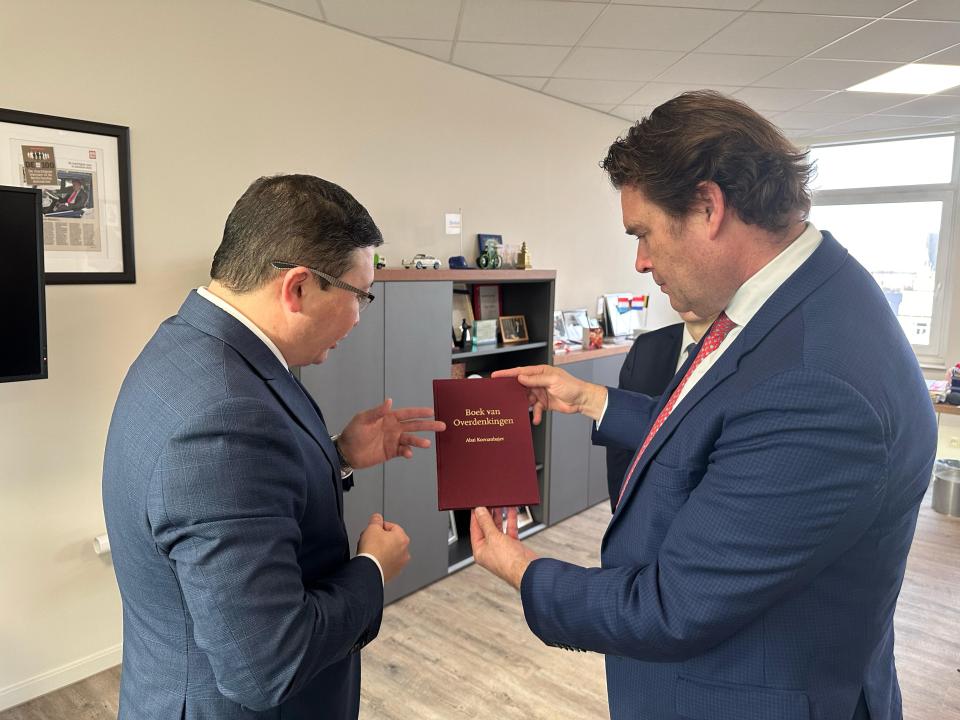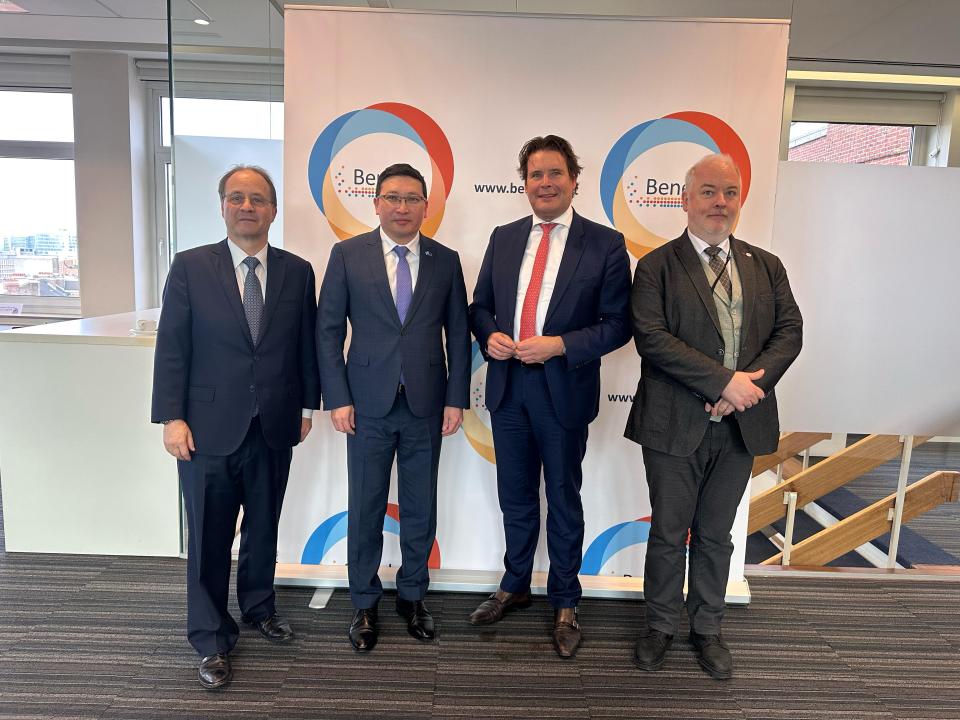Prospects for Cooperation with the Benelux Intergovernmental Organization Discussed in Brussels, DKNews.kz reports.
Ambassador of Kazakhstan Margulan Baimukhan met with the Secretary General of the Benelux Union Frans Weekers and Deputy Secretary Generals Michel-Etienne Tilemans and Jean-Claude Meyer.
The parties discussed promising areas of cooperation between Kazakhstan and the General Secretariat of the Benelux Union. Particular attention was paid to the priorities of Kazakhstan in the European direction, as well as the implementation of the Enhanced Partnership and Cooperation Agreement between Kazakhstan and the European Union.

During the conversation, Secretary General Frans Weekers introduced the Ambassador to the formats of cooperation among the Benelux countries. The leadership of the General Secretariat also informed about cooperation in an intergovernmental and interparliamentary format among member states. The parties also discussed the experience of interaction between law enforcement authorities of the Benelux member states.
In turn, Margulan Baimukhan informed foreign colleagues about the development of the international transport “Middle Corridor”, as well as about Kazakhstan’s goals to achieve carbon neutrality by 2060. In this regard, the leadership of the General Secretariat expressed interest in the topic of “green” hydrogen production in Kazakhstan.
In addition, the Kazakh diplomat emphasized the main priorities of cooperation between the Central Asian countries and the EU. Special emphasis was placed on the results of the Global Gateway Investors Forum for EU-Central Asia Transport Connectivity held in January 2024 in Brussels, during which it was announced that the European Union intends to attract up to 10 billion EUR of investments in the development of a transport corridor from Central Asia to the EU.

At the end of the meeting, the Ambassador invited Frans Weekers to take part in the Astana International Forum, which will be held in Kazakhstan in June of this year.
The Benelux Union generates approximately 8% of the GDP of the European Union and includes the Kingdoms of Belgium and the Netherlands, as well as the Grand Duchy of Luxembourg. The organization was founded on September 5, 1944. The political-economic union initially focused on customs barriers and ensuring the free movement of people, goods and services. Currently, the activities of the Benelux organization covers a wider range of topics, including sustainable development, security, energy, transport, etc.








